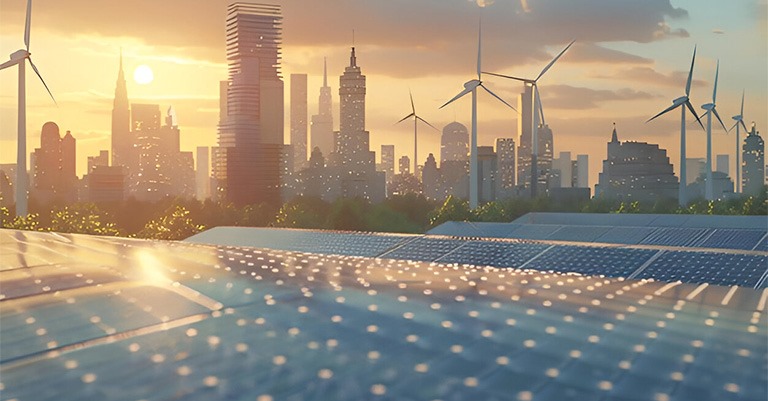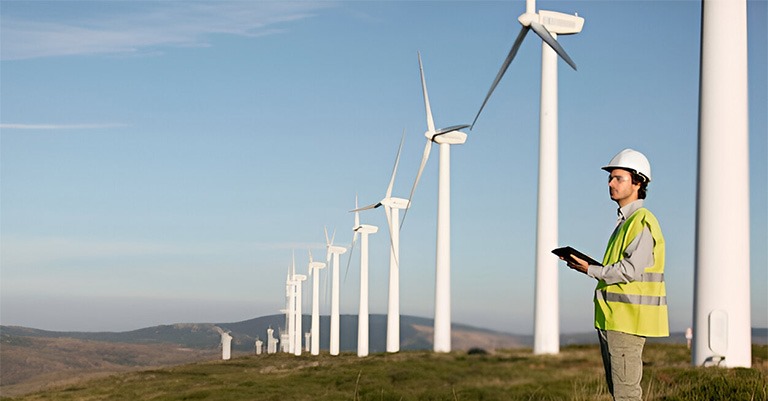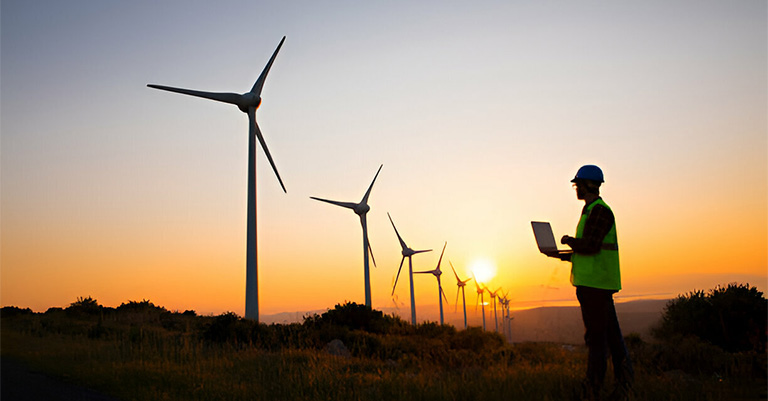Financing renewable energy projects in the UAE represents a critical step in the nation’s commitment to sustainability and reducing its carbon footprint. As the country looks to diversify its energy sources, innovative financial solutions are emerging to support the growth of the renewable energy sector. The availability of funding and effective financing models play a pivotal role in driving the adoption of renewable technologies in the UAE.
Financial Models for Renewable Energy Projects
Financial models are the backbone of any successful renewable energy project in the UAE. These models provide a framework for evaluating project feasibility, estimating costs and returns, and assessing risks. They help investors and project developers make informed decisions, ensuring the efficient allocation of resources in sustainable energy ventures.
UAE Renewable Energy Financing Strategies
UAE renewable energy financing strategies are designed to attract investors and facilitate the development of green energy projects. These strategies encompass a range of financial instruments, incentives, and partnerships that encourage sustainable energy investments while fostering economic growth and environmental stewardship.
Sustainable Energy Financing in the UAE
Sustainable energy financing in the UAE is rooted in the nation’s commitment to a cleaner, greener future. Funding mechanisms that prioritize sustainability not only support the UAE’s environmental goals but also provide opportunities for financial institutions and investors to participate in the renewable energy revolution.
Renewable Energy Investment in the UAE

Investing in renewable energy projects in the UAE is becoming increasingly attractive as the sector matures and gains momentum. Renewable energy investment not only offers financial returns but also aligns with global sustainability objectives, making it a strategic choice for those looking to support a green and sustainable future. Here are some recent facts and figures related to financing renewable energy projects in the UAE:
- The United Arab Emirates (UAE) and the International Renewable Energy Agency (IRENA) have launched the Energy Transition Accelerator Financing (ETAF) Platform, a new global climate finance facility to accelerate the transition to renewable energy in developing countries. The UAE committed USD 400 million in funding provided by the Abu Dhabi Fund for Development (ADFD) toward the platform’s goal of securing a minimum of USD 1 billion in total funding. Through co-financing, ETAF will aim to mobilize an additional USD 2 billion in energy transition investments, targeting a total deployment of 1.5 GW of clean renewable energy generation and storage by 2030.
- Emirates Development Bank (EDB) has highlighted the significant role of renewable energy financing towards the UAE’s Net Zero by 2050 Strategic Initiative and vision for economic diversification. EDB is the financial engine for UAE’s economic development and industrial advancement. The bank aims to provide financing solutions for renewable energy projects in the UAE.
- The UAE has set a target of achieving a sustainable environment and infrastructure by 2021 under its Vision 2021 initiative. The government has set Key Performance Indicators (KPIs) to measure its performance against its targets for 2021. The KPIs related to infrastructure (other than transportation) are: Improving the Networked Readiness Index (telecommunication and IT sectors) and improving the online services index.
- The construction industry in the UAE is expected to rise from a value of US$80.7 billion in 2018 to US$101.2 billion in 2023, measured at constant 2017 US dollar exchange rates. Residential construction was the largest market in the UAE construction industry during the review period, accounting for 33.1% of the industry’s total value in 2018.
Renewable Energy Market in the UAE
The renewable energy market in the UAE is a burgeoning sector marked by substantial growth and innovation. Solar, wind, and biomass projects are making significant strides, driven by the country’s commitment to diversifying its energy mix and reducing greenhouse gas emissions.
UAE Renewable Energy Policy and Incentives
UAE’s renewable energy policy and incentives are instrumental in creating an environment that is enabling sustainable energy projects. The government’s commitment to offering regulatory support, feed-in tariffs, and other incentives encourages both local and international investors to participate in the renewable energy market.
Project Financing for Solar Energy in the UAE
Solar energy project financing in the UAE is a prominent focus due to the country’s abundant sunlight. Financing models for solar projects often include a combination of equity, debt, and incentives, making it feasible for companies to harness solar power for sustainable energy generation.
Wind Energy Project Financing in the UAE

Wind energy project financing in the UAE is gaining traction as wind farms become more prevalent in the country’s energy landscape. Investors and financial institutions play a crucial role in funding wind energy projects, capitalizing on the UAE’s wind resources.
Biomass and Bioenergy Financing Models
Biomass and bioenergy projects in the UAE also require tailored financing models. These projects leverage organic materials to generate energy sustainably. Financing solutions for biomass projects involve assessing the feasibility of sourcing, processing, and utilizing organic matter for energy production.
Risk Assessment in Renewable Energy Financing
Risk assessment is a fundamental aspect of renewable energy financing. Investors and lenders evaluate the potential risks associated with renewable projects, including technological, environmental, regulatory, and financial factors, to make informed investment decisions.
Green Bonds and Renewable Energy Financing
Green bonds are becoming an increasingly popular financial instrument for renewable energy financing. These bonds raise capital exclusively for environmentally friendly projects, including renewable energy initiatives, offering investors an avenue to support sustainable development.
Public-Private Partnerships in UAE Renewable Energy

Public-private partnerships (PPPs) are essential for large-scale renewable energy projects in the UAE. These collaborations leverage government resources and private sector expertise to drive investments, fostering sustainable energy generation and reducing the carbon footprint.
Tax Incentives for Renewable Energy Projects
Tax incentives serve as powerful tools to attract investment in renewable energy projects. UAE tax policies often provide exemptions, credits, or deductions to incentivize clean energy initiatives, enhancing project viability and returns.
ROI Analysis for UAE Renewable Energy Investments
Return on investment (ROI) analysis is a critical component of evaluating the financial feasibility of renewable energy investments in the UAE. It helps stakeholders assess the potential returns and risks associated with various sustainable energy projects.
Environmental Impact Assessment in Project Financing
Environmental impact assessments (EIAs) are integral in project financing for renewable energy. These assessments ensure that projects adhere to environmental regulations and sustainable practices, minimizing their ecological footprint.
Financing Challenges in UAE Renewable Energy
Despite the opportunities, financing renewable energy projects in the UAE presents challenges, including securing long-term funding, navigating regulatory complexities, and mitigating technological risks. Addressing these challenges requires innovative financial strategies and collaborations.
International Collaboration in Renewable Energy Finance

International collaboration plays a significant role in UAE renewable energy finance. Partnerships with global entities and organizations facilitate knowledge sharing, technology transfer, and access to international funding sources for sustainable energy projects.
UAE Renewable Energy Success Stories
Success stories in UAE renewable energy projects exemplify the nation’s commitment to sustainable development. These stories showcase the achievements, innovations, and positive environmental impacts of renewable energy initiatives.
Future Trends in Renewable Energy Financing
The future of renewable energy financing in the UAE promises continued growth and innovation. Emerging trends, such as blockchain-enabled financing, green finance initiatives, and decentralized energy systems, are expected to shape the landscape of sustainable energy investments in the country.
In conclusion, financing renewable energy projects in the United Arab Emirates (UAE) represents both a pivotal challenge and a significant opportunity in the nation’s pursuit of a sustainable and greener future. As the world grapples with the urgent need to reduce carbon emissions and combat climate change, the UAE is emerging as a key player in the renewable energy landscape.






